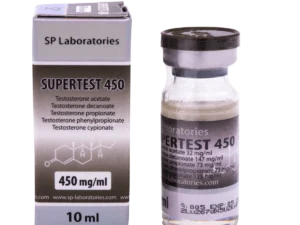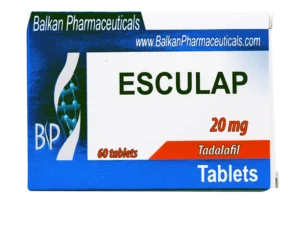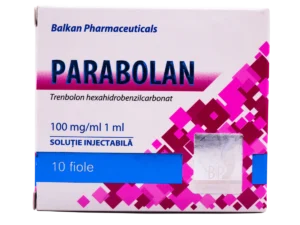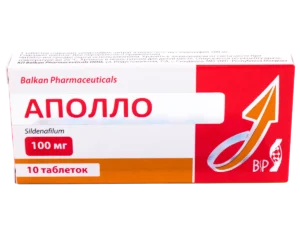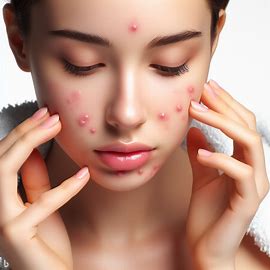
Understanding and Treating Acne, Blackheads, and Pimples
Acne, blackheads, and pimples are common skin conditions that affect millions of individuals worldwide. These skin issues can be both physically and emotionally distressing, causing discomfort, self-consciousness, and even affecting one’s self-esteem. Understanding the causes, symptoms, and treatment options for these skin concerns is crucial for effectively managing and preventing their occurrence.
Acne is a chronic skin condition characterized by the formation of pimples, blackheads, whiteheads, and sometimes cysts or nodules. It primarily affects teenagers during puberty due to hormonal changes, but it can persist into adulthood. The exact cause of acne is multifactorial, involving factors such as excess oil production, clogged hair follicles, bacteria, and inflammation. Hormonal imbalances, stress, certain medications, and genetics can also contribute to the development of acne.
Blackheads, also known as open comedones, are a type of acne lesion that appears as small, dark bumps on the skin’s surface. They occur when the hair follicles become clogged with excess oil, dead skin cells, and bacteria. Unlike whiteheads, which are closed comedones, blackheads have an open pore, allowing the oxidation of melanin in the clogged pore, resulting in their characteristic dark appearance.
Pimples, on the other hand, are inflamed acne lesions that can be red, swollen, and filled with pus. They occur when the clogged hair follicles become infected with bacteria, leading to an immune response and the formation of a visible pimple. Pimples can be painful and can leave behind scars or dark spots if not treated properly.
Treating acne, blackheads, and pimples requires a comprehensive approach that addresses the underlying causes and reduces the severity of symptoms. It is essential to maintain a consistent skincare routine that includes gentle cleansing, exfoliation, and moisturizing to prevent clogged pores and reduce excess oil production. Additionally, incorporating topical treatments such as benzoyl peroxide, salicylic acid, or retinoids can help unclog pores, reduce inflammation, and promote skin cell turnover.
In more severe cases, oral medications or professional treatments like chemical peels, laser therapy, or extractions may be recommended by dermatologists. It is important to note that each individual’s skin is unique, and what works for one person may not work for another. Therefore, it is advisable to consult with a dermatologist to determine the most suitable treatment plan for specific skin concerns.
In conclusion, acne, blackheads, and pimples can significantly impact an individual’s physical appearance and emotional well-being. Understanding the causes and treatment options for these common skin conditions is crucial for effectively managing and preventing their occurrence. By adopting a consistent skincare routine, incorporating appropriate topical treatments, and seeking professional guidance when needed, individuals can regain control over their skin health and achieve a clearer, healthier complexion.
The Impact of Acne, Blackheads, and Pimples on Skin Health
Acne: Causes and Symptoms
Acne is a common skin condition that affects individuals of all ages, but it predominantly occurs during adolescence. The primary cause of acne is the overproduction of sebum, an oily substance that helps lubricate the skin. When excess sebum combines with dead skin cells and bacteria, it can clog the hair follicles, leading to the formation of acne lesions.
The symptoms of acne vary from person to person but typically include the presence of blackheads, whiteheads, pimples, and, in severe cases, cysts or nodules. These lesions can appear on the face, neck, chest, back, and shoulders, causing redness, inflammation, and sometimes pain. Acne can also have a significant impact on an individual’s self-confidence and emotional well-being.
Blackheads: Causes and Treatment
Blackheads, or open comedones, are a specific type of acne lesion that occurs when the hair follicles become clogged with excess sebum, dead skin cells, and bacteria. The main difference between blackheads and other types of acne is the presence of an open pore, allowing the trapped material to oxidize and turn dark.
To effectively treat blackheads, it is important to focus on unclogging the pores and reducing excess oil production. Regular cleansing with a gentle face wash can help remove dirt, oil, and impurities from the skin. Exfoliation using products containing salicylic acid or gentle physical exfoliants can also aid in removing dead skin cells and preventing clogged pores.
Using non-comedogenic moisturizers and avoiding heavy, oily cosmetics can help prevent further pore blockage. It is important to resist the temptation to squeeze or pick at blackheads, as this can lead to inflammation, infection, and potential scarring. If over-the-counter treatments do not provide satisfactory results, consulting a dermatologist for professional extraction or other treatment options may be necessary.
Pimples: Causes and Management
Pimples, or inflamed acne lesions, occur when the clogged hair follicles become infected with bacteria, leading to inflammation and the formation of red, swollen bumps filled with pus. Pimples can be painful and can leave behind scars or dark spots if not treated properly.
Managing pimples involves a combination of preventing clogged pores and reducing inflammation. Similar to treating blackheads, gentle cleansing and exfoliation are essential for keeping the skin clean and free from excess oil and dead skin cells. Topical treatments containing ingredients like benzoyl peroxide or salicylic acid can help kill bacteria and reduce inflammation.
In more severe cases, dermatologists may prescribe oral medications such as antibiotics or isotretinoin to target the underlying causes of acne and prevent further breakouts. It is crucial to follow the prescribed treatment plan and maintain a consistent skincare routine to effectively manage and prevent pimples.
Conclusion
Acne, blackheads, and pimples are common skin concerns that can have a significant impact on an individual’s skin health and self-esteem. Understanding the causes and symptoms of these conditions is the first step towards effective treatment and prevention. By adopting a comprehensive skincare routine, incorporating appropriate topical treatments, and seeking professional guidance when needed, individuals can successfully manage and minimize the occurrence of acne, blackheads, and pimples. Remember, consistency and patience are key when it comes to achieving a clearer and healthier complexion.
Practical Recommendations for Treating Acne, Blackheads, and Pimples
1. Establish a Consistent Skincare Routine
Developing a regular skincare routine is crucial for managing and preventing acne, blackheads, and pimples. Follow these steps:
– Cleanse: Use a gentle cleanser twice daily to remove dirt, oil, and impurities from the skin.
– Exfoliate: Incorporate exfoliation into your routine 1-2 times a week to remove dead skin cells and unclog pores.
– Moisturize: Choose a non-comedogenic moisturizer to keep the skin hydrated without clogging pores.
2. Use Topical Treatments
Topical treatments can be effective in reducing acne, blackheads, and pimples. Consider the following options:
– Benzoyl Peroxide: Apply a thin layer of benzoyl peroxide cream or gel to affected areas to kill bacteria and reduce inflammation.
– Salicylic Acid: Use products containing salicylic acid to exfoliate the skin, unclog pores, and reduce blackheads and pimples.
– Retinoids: Consider using retinoid creams or gels to promote skin cell turnover and prevent the formation of new acne lesions.
3. Avoid Squeezing or Picking at Lesions
Resist the urge to squeeze or pick at acne, blackheads, and pimples. This can lead to further inflammation, infection, and potential scarring. Instead, focus on gentle cleansing, exfoliation, and using appropriate treatments to address these concerns.
4. Maintain a Healthy Lifestyle
Certain lifestyle factors can contribute to the development of acne. Consider the following recommendations:
– Eat a balanced diet: Include fruits, vegetables, whole grains, and lean proteins in your diet to support overall skin health.
– Stay hydrated: Drink plenty of water to keep the skin hydrated and promote detoxification.
– Manage stress: Practice stress management techniques such as exercise, meditation, or deep breathing to reduce stress levels, as stress can worsen acne.
5. Seek Professional Guidance
If over-the-counter treatments do not provide satisfactory results or if acne, blackheads, or pimples are severe, it is advisable to consult a dermatologist. They can provide personalized treatment plans, prescribe medications if needed, and offer professional procedures like chemical peels or extractions.
Remember, achieving clear and healthy skin takes time and patience. Be consistent with your skincare routine, follow the recommendations above, and consult with a dermatologist for personalized advice and treatment options. With dedication and proper care, you can effectively manage and reduce the occurrence of acne, blackheads, and pimples, leading to a clearer and more confident complexion.



